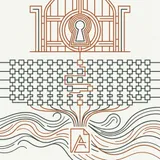Citation verification becomes must-have as fake cases fool judges
"A Georgia trial judge just ruled on fake cases generated by AI, and the appellate court had to clean up the mess."

A Georgia trial judge just ruled on fake cases generated by AI, and the appellate court had to clean up the mess. Judge Jeff Watkins fined the lawyer $2,500 after discovering the husband's brief relied on "two fictitious cases" to win a divorce dispute, but the damage was done—a court order based on hallucinated citations had already been issued.
I think this marks the moment legal tech vendors focused on citation verification will see serious demand growth. Former Texas appellate judge John Browning warns it's "frighteningly likely" more courts will incorporate bogus citations as overwhelmed judges rubber-stamp attorney-drafted orders without proper scrutiny. With only Michigan and West Virginia requiring judges to maintain AI "tech competence," most courts are flying blind.
The economics here are straightforward: courts can't hire enough clerks to manually verify every citation in an era where AI makes it trivial to generate plausible-looking fake cases. Legal research platforms like Westlaw and LexisNexis already have the infrastructure to build automated citation checkers, and smaller players will rush to fill gaps with specialized AI detection tools. Princeton researcher Peter Henderson wants an open repository to make verification easier, which would democratize access but also create competitive pressure.
The real winners will be services that can integrate seamlessly into existing court workflows—something that flags suspicious citations before orders get signed, not after appeals reveal the embarrassment. Courts will pay for tools that protect their reputational and operational integrity. 📚



